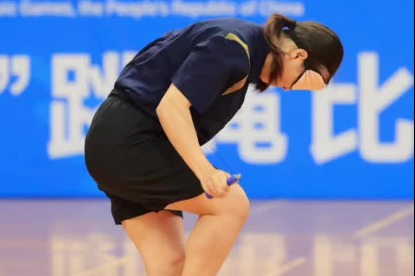Brazil still haunted by trauma of the 'Maracanazo'


Uruguay underrated
In Uruguay, the victory was turned into a metaphor for how the small can overcome a giant.
While "Maracanazo" means a national tragedy in Brazil, in Uruguay it is used to describe a victory against the odds or the overcoming of adversity.
In reality, though, despite the difference in the size of the two countries-Brazil's population was around 23 times greater than Uruguay's in 1950-this was no David defeating Goliath.
Uruguay was still a soccer superpower at the time having won the Olympic Games in 1924 and 1928 and the first World Cup in 1930.
"With the Maracanazo, sometimes the emphasis is put on a 'great feat' ... and the fact that Uruguay had a great team is brushed aside," said Uruguayan journalist Atilio Garrido, author of Maracana, A Secret History.
For sociologist Felipe Arocena, from the Uruguay's University of the Republic, what happened in the "Maracana was a confirmation for those that experienced it".
Uruguay's position in world soccer "was much more than just the 1950 final, although the Maracana epic ended up overshadowing" three decades of success.
That's not the way the Brazilians-hungry for a first world title-saw things.
For Helal, the trauma lasted until Brazil's third World Cup triumph, when Pele inspired the Selecao to glory in Mexico in 1970-their third success in four tournaments.
That was greeted "as a victory for the Brazilian nation".
With the passage of time, Brazilian society has come to understand that "national team matches are (just) sporting victories or defeats".
That change in mentality was evident in 2014 when Brazil suffered its most humiliating experience on the pitch-hammered 7-1 at home in the World Cup semifinal by a rampant Germany.
"In 1950 it was a tragedy; in 2014 it was a satire that became a meme, because people didn't take it so seriously anymore," said Helal, who added that the 2014 reaction shows "a greater maturity in society".
For Uruguay, that moment was a peak the country has been unable to match since, either on the pitch or from an economic perspective.
Uruguay's best results at a World Cup since have been fourth-place finishes in 1954, 1970 and 2010.
"As a small country without great resources it's become ever more difficult to compete in a sport where the importance of money is growing," said journalist Luis Prats, an author of several soccer books.
And once Uruguay began its economic decline from the heady days of the 1950s, "sport in general was no longer given the same importance by the state that it had at the beginning of the (20th) century," added Arocena.
Today, that result is seen through the lens of a tiny country dwarfed by two regional giants-both from a soccer and economic perspective-Brazil and Argentina.
"It's an episode that summons national pride, with aspects that seem legendary," said Prats.
AGENCE FRANCE-PRESSE
Most Popular
- Freeride World Tour Qualifier kicks off in Xinjiang's Hemu
- Gu's season-opening comeback win a huge confidence booster
- World Surf League returns to China for event at Hainan's Riyue Bay
- Video of visually impaired athlete earning a gold medal goes viral
- Highlights of para badminton at China's 12th National Games for Persons with Disabilities
- Highlights of China's 12th National Games for Persons with Disabilities





























